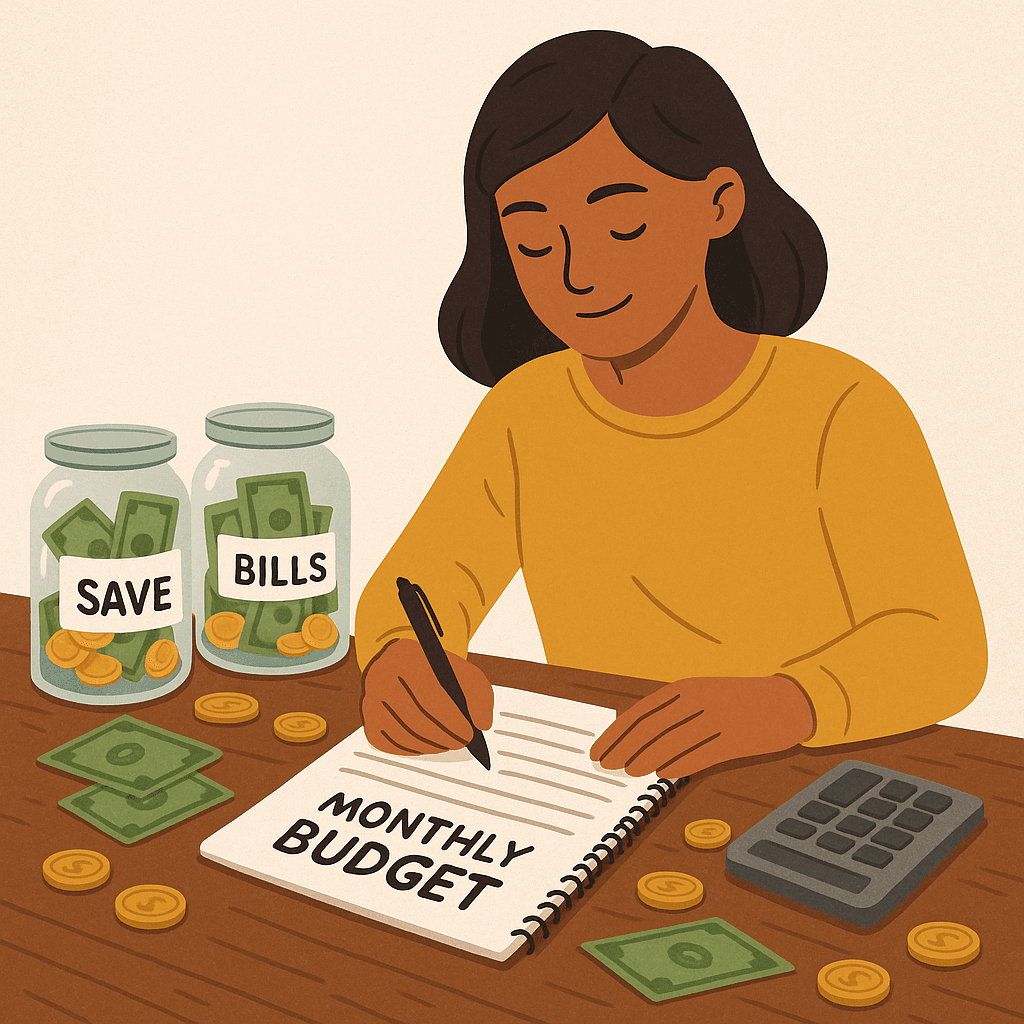Hey there! Living paycheck to paycheck can feel like you’re stuck in a cycle with no way out. Every time a paycheck comes, it seems to disappear just as quickly, right? But here’s a question worth exploring: can small changes actually make a dent? Or is it just a feel-good idea that doesn’t really change much? Let’s look at a few simple steps people talk about and dig into whether they might actually work or just add to the stress.
Track Every Single Penny: Does Knowing Really Help?
Have you ever thought about tracking every penny you spend? It sounds simple, maybe even a bit extreme. Some say it’s a game-changer – you get to see exactly where your money is going, down to that last snack you bought on a whim. But is this hyper-awareness a blessing or a burden? Does tracking every little purchase make you feel in control, or just constantly aware of what you can’t afford? Try tracking for a week or a month, and see if it reveals anything surprising about your spending habits. But is there more to this than meets the eye? Maybe there’s something to this penny-tracking practice that only people who try it can really explain.
Set Tiny Goals: Do They Really Add Up?
Goals are all the rage, but do tiny goals like saving $1 a day or cutting back on takeout really add up to something big? Some people swear by these small, easy-to-reach goals, saying they keep you motivated and slowly build your savings. Others think it’s just a distraction – that unless you’re making major cuts, it won’t change much. But here’s the thing: is there more going on with these small goals than we realize? Could they be a gateway to bigger changes? It’s hard to say for sure without trying, but it leaves us wondering, doesn’t it?
Cut Down on Non-Essentials: Freedom or Frustration?
Cutting back on “extras” can sound like a simple way to save money, but some people find it exhausting. Why cut out small pleasures, like that coffee you love, when they’re the few bright spots in your week? On the flip side, others argue that cutting down on these little treats is the only way to build real financial freedom. But maybe there’s something more to this choice than just budgeting. Does giving up little treats lead to a deeper change, or does it just make life feel a bit more dull? There’s a balance somewhere here, but finding it could look different for everyone.
Make Meals at Home: Saving or Sacrificing?
Cooking at home is one of the biggest money-saving tips out there, but it’s not exactly quick or convenient, is it? Some people say it’s the secret to staying on budget, while others feel like it adds more to their already full plate. Are the savings worth the effort, or does it end up feeling like one more chore? There might be more to this than just dollars and cents. Some say it can actually change the way you think about food, your habits, and your time. But is that true? Or is it just one of those ideas that sounds better on paper?
Build an Emergency Fund: Smart Safety Net or Impossible Dream?
Ah, the emergency fund – sounds like such a good idea in theory, but when every dollar already feels like it’s spoken for, it can seem like an impossible goal. Some say even a small fund, like $100, can bring peace of mind. Others argue that without a serious amount saved up, it’s hardly worth the effort. So, does it make sense to try, or is it a dream best saved for when you’re in a better place financially? Or could there be hidden benefits to this that we haven’t considered?
The truth is, we’re all trying to find what works. These small changes might make a big difference, or they might not. But they do get us thinking, right? So, what do you think? Have you tried any of these? Have they worked? Or are they just adding more stress to an already tight budget? Let’s dive deeper into this in the forum – I’d love to hear what you think and share thoughts with others trying to figure this out too.
Ready to share your take?



